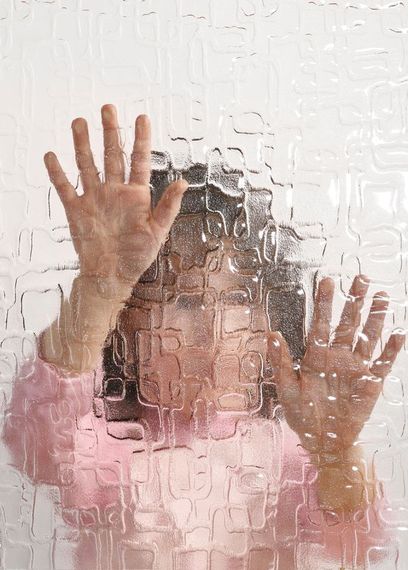April -- which annually serves as Autism Awareness Month -- brought showers of awareness on the condition and with it tremendous debate. Having completed a lot of research on the subject before putting pen to paper, I have come to the conclusion that a lot is known... about the unknown nature of the disease. Conflicting literature exists as to the definition, the prevalence, etiology and treatment options for the disorder.
So to begin, some basic information:
- What is autism? The definition has evolved over the decades to reflect a spectrum of neuro-developmental disorders characterized by varying degrees of intellectual disabilities, difficulties in verbal/nonverbal communication, poor social interactive skills and deficits in motor coordination.
- What is the prevalence of autism? While numbers vary considerably pending the source, the estimated number of children affected in the U.S. by autism spectrum disorder 1 in 88 children, with a 4:1 male vs. female preponderance. [1]
- What causes autism? Herein lies the rub; no definitive etiologic factor has been identified to date, no test exists to diagnose it either prenatally or during childhood.
So, who's the culprit in the genesis of the disease: Mother Nature (internal cause), or Mother Nurture (external cause)? Let's evaluate some internal components.
- Genetics: Autism tends to run in some families. Studies looking at identical twins have noted when one twin has the disease, in the vast majority of cases, so does the other. [2] Several genes have been identified that potentially may be linked to autism. [3]
- Immunologic: Researchers have identified certain molecules within the immune system that may impact, negatively, the developing fetal brain, causing autism. [4]
- Parental age: Mothers, but particularly fathers of advanced age, have a higher chance of having a child with autism. [5]
What about external components?
- Environmental: There is a lot of research that looks at pesticides, plastics, metals (ex. lead, mercury), air pollution as a factor; the commonality here is they all in some fashion negatively impact the normally functioning hormonal or genetic systems within the body. [6]
- Drugs: Anti-seizure meds (ex. Valproic acid), anti-depressive medications, particularly SSRIs (like Paxil, Prozac) have been associated with potentially impacting the fetal brain during development and increasing autism's risk. [7]
- Inflammation: Certain disease processes like obesity and diabetes reflect a chronic inflammatory state within the body -- again associated with an increasing risk of autism in the offspring of those so affected. [8]
So in the final analysis, what are we really seeing, and what can be done? Let me introduce another topic -- that of epigenetics -- basically the concept that non-genetic factors influence the way that genes express themselves. Is autism a symptom of this Pandora's Box? It gets "curiouser and curiouser."
Autism's prevalence has exploded over the last 30 years -- whether this reflects better awareness or expanded criteria for diagnosis, the rise can't be ignored. It has become a public health issue affecting social, financial, medical and governmental policy. I think that autism as a disease is the tip of the iceberg, reflecting how our environmental exposures, now, negatively impacts/impairs human genetic activity -- a combination of Mother Nature AND Mother Nurture. We are what we eat, drink, and breathe; we mirror our environment.
So for us all, but particularly for you moms to be out there, pay attention to what you are eating, look at what you are serving your food in, check the pesticides and cleaning agents in the home, know the possible effects of the meds you are taking.
As we continue as a society, we need to consider the Earth as the first womb and observe the Golden Rule -- reflect on what we are doing to the environment -- because ultimately what we do unto it... it does unto us as well.
Reference List
1. Sylvie Goldman, MD, Albert Einstein College of Medicine, Opinion: Sex, Gender and the Diagnosis of Autism - A Biosocial View of the Male Preponderance (p.1-2) http://www.sciencedirect.com/science/article/pii/S1750946713000317
2. CDC -- Centers for Disease Control and Prevention, http://www.cdc.gov/ncbddd/autism/data.html#references
3. Mount Sinai Hospital / Mount Sinai School of Medicine, Mutations in Three Genes Linked to Autism Spectrum Disorder, http://www.sciencedaily.com/releases/2012/04/120404133656.htm?utm_source=rss&utm_medium=rss&utm_campaign=mutations-in-three-genes-linked-to-autism-spectrum-disorders
4. Betty Diamond, Center for Autoimmune and Musculoskeletal Disorders at The Feinstein Institute for Medical Research, Large Study Links Autism to Autoimmune Disease in Mothers, https://sfari.org/news-and-opinion/news/2013/large-study-links-autism-to-autoimmune-disease-in-mothers
5. JAMA Psychiatry, Paternal Age at Childbearing and Offspring Psychiatric and Academic Morbidity, http://archpsyc.jamanetwork.com/article.aspx?articleid=1833092
6. PLOS Computational Biology, Environmental and State-Level Regulatory Factors Affect the Incidence of Autism and Intellectual Disability http://www.ploscompbiol.org/article/info%3Adoi%2F10.1371%2Fjournal.pcbi.1003518
7. Pediatrics, Prenatal SSRI Use and Offspring With Autism Spectrum Disorder or Developmental Delay, http://pediatrics.aappublications.org/content/early/2014/04/09/peds.2013-3406
8. American Academy of Pediatrics, Study Examines Link Between Obesity, Diabetes and Autism, http://www.aap.org/en-us/about-the-aap/aap-press-room/pages/Study-Examines-Link-Between-Obesity,-Diabetes-and-Autism.aspx
